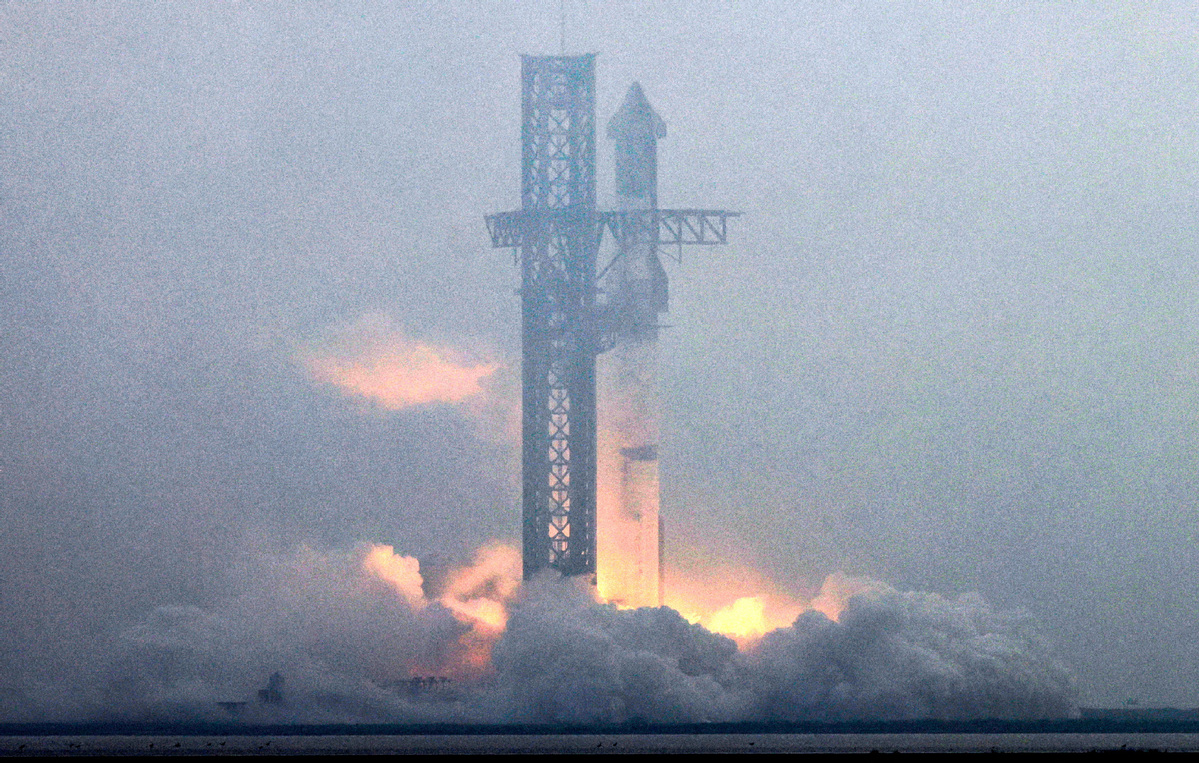Quest for cost-effective space flight continues


SpaceX reportedly came close to completing an hour-long test flight of its Starship rocket on Thursday. For SpaceX, the third spaceflight was already a "partial success". As early as April 2023, during the first launch of one of the mega rockets, Elon Musk, sponsor of the project, said that as long as it didn't explode on the launch pad, no matter how high it flew so long as it got off the ground it would be considered a success.
Instead of spending time on long-term, repetitive demonstrations and testing, SpaceX improves reliability through repeated launch missions, identifies technical vulnerabilities with each failure and addresses them in the next version of the product.
A total of five Starships have been produced in the first batch, and Musk announced that another launch will be conducted in a few months following the one on Thursday. For the company, the loss of one Starship only provides teaching materials for improving the next one.
In addition, SpaceX produces its manned spacecraft, cargo spacecraft, and rockets, in batches with standardized designs. These mass-produced spacecraft are standardized, which significantly lowers costs by reducing the need for customized design, production and testing.
For instance, SpaceX uses door handles commonly found in daily life as the switches for spacecraft cabin doors. These are much more reliable and cost-effective than engineers designing a specialized door handle for spacecraft. It also purchases low-grade commercial chips from the electronics market, which are much cheaper than the ones specially designed for astronautics. The company ensures reliability through redundant backup designs using multiple chips. This is why people have demonstrated great interest in the project that heralds a significant reduction in the cost of space travel.
However, the R&D costs of NASA's Artemis Project, to which SpaceX is a contractor, will likely become unbearably high. Besides, it's necessary for SpaceX to ensure the reliability of its Starship rockets because when they finish experimental manned spaceflight and do actual manned spaceflight, there can be no more "partial successes"-that would mean a loss of lives.
Nonetheless, the innovative efforts of SpaceX are worth encouraging.

































